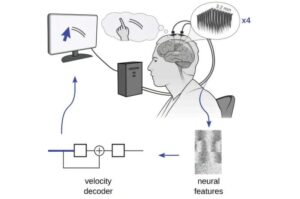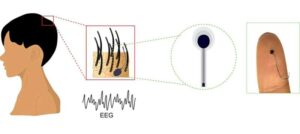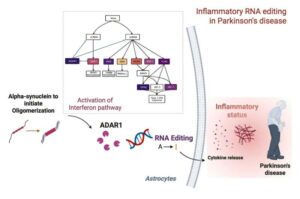
Designer Microbes Can Now Reduce Mercury Poisoning
A new probiotic could soon tackle the burden of heavy-metal-contaminated fish.

A new probiotic could soon tackle the burden of heavy-metal-contaminated fish.

After spending years tracing the origin and migration pattern of an unusual type of immune cell in mice, researchers have shown in a new study how activity of “good” microbes in the gut is linked to rheumatoid arthritis and, potentially, other autoimmune diseases.

University of California, Davis researchers have developed a brain-computer interface (BCI) that enables computer cursor control and clicking, using neural signals from the speech motor cortex. One participant with amyotrophic lateral sclerosis (ALS) used the interface for daily life activities, including independent control of a personal desktop computer and text entry.

The future of electroencephalography (EEG) monitoring may soon look like a strand of hair. In place of the traditional metal electrodes, a web of wires and sticky adhesives, a team of researchers from Penn State created a hairlike device for long-term, non-invasive monitoring of the brain’s electrical activity. The lightweight and flexible electrode attaches directly to the scalp and delivers stable, high-quality recordings of the brain’s signals.

The research team, led by Professor Minee L. Choi from the Department of Brain and Cognitive Sciences, in collaboration with University College London (UCL) and the Francis Crick Institute, discovered that the RNA-editing enzyme ADAR1 plays an important role in controlling immune responses in astrocytes, glial cells that trigger protective reactions in the brain, and demonstrated that this mechanism is critically involved in the progression of Parkinson’s disease.

FaceHeart Vitals™ is a video-based, contactless vital sign measurement SDK that can be integrated into devices such as smartphones seamlessly, providing heart rate, respiration rate, blood pressure and other vital sign readings in 50 seconds.